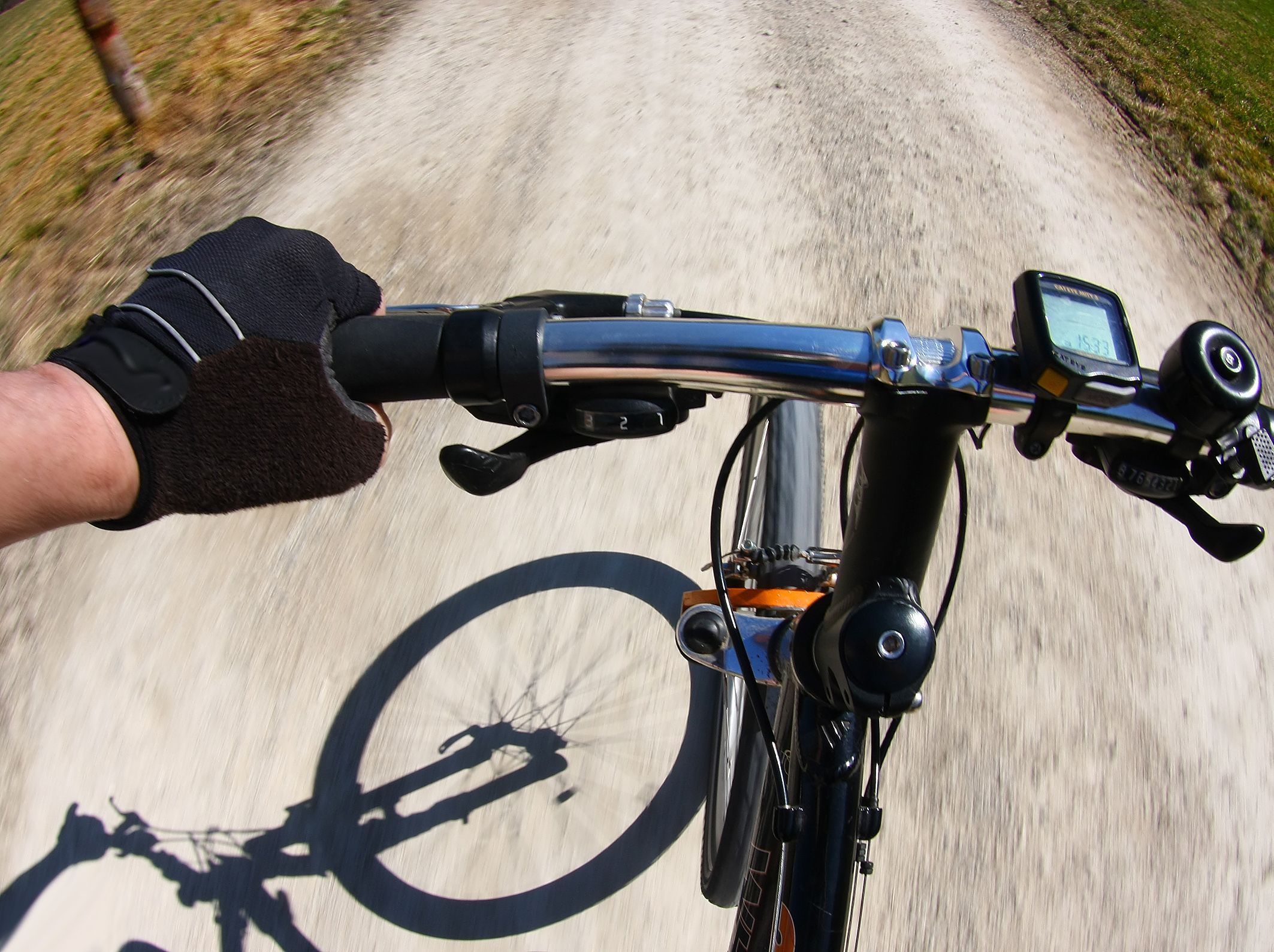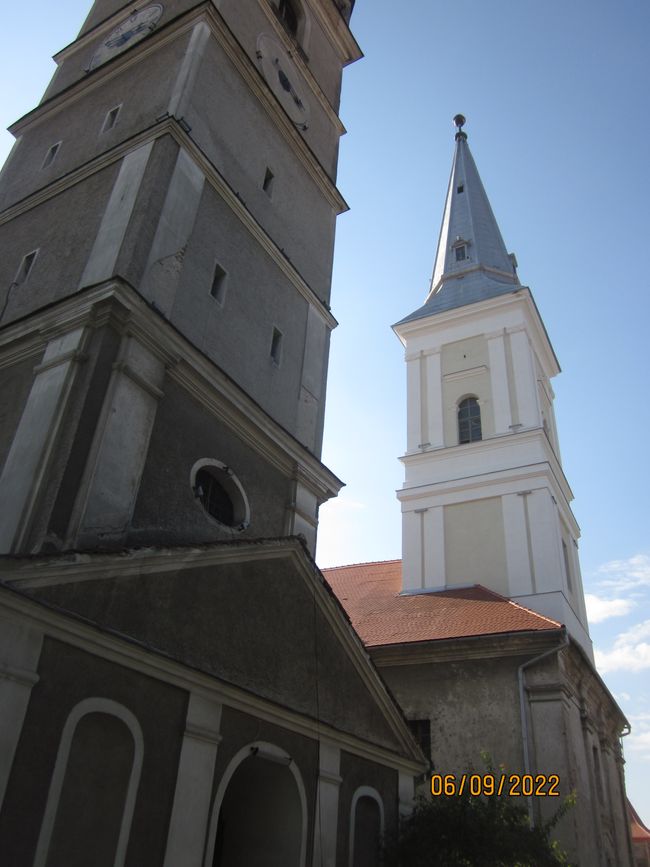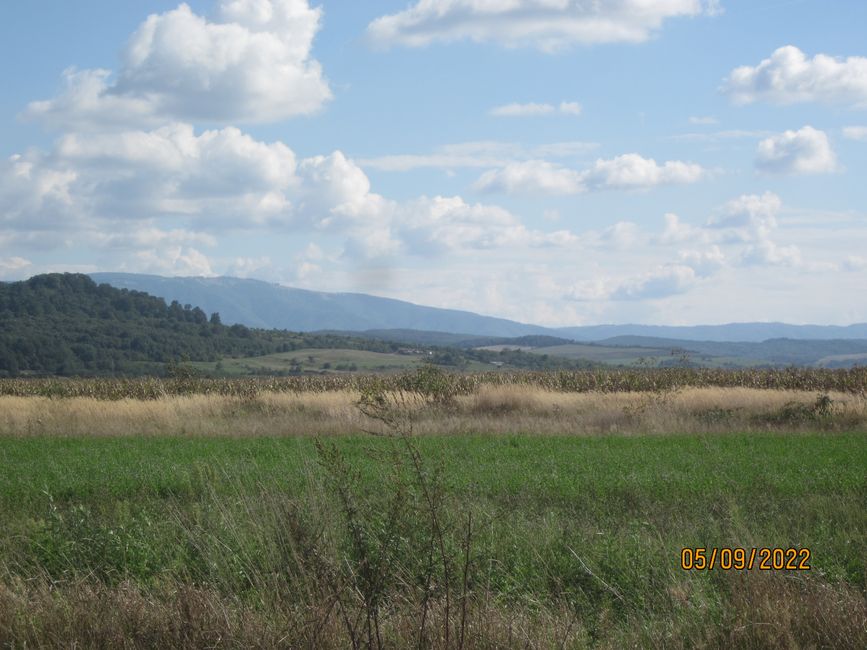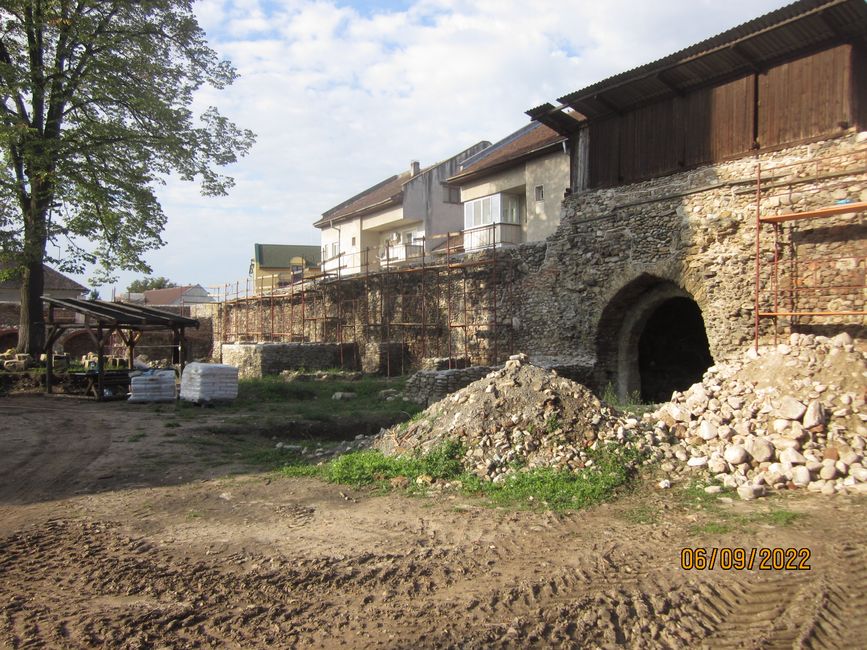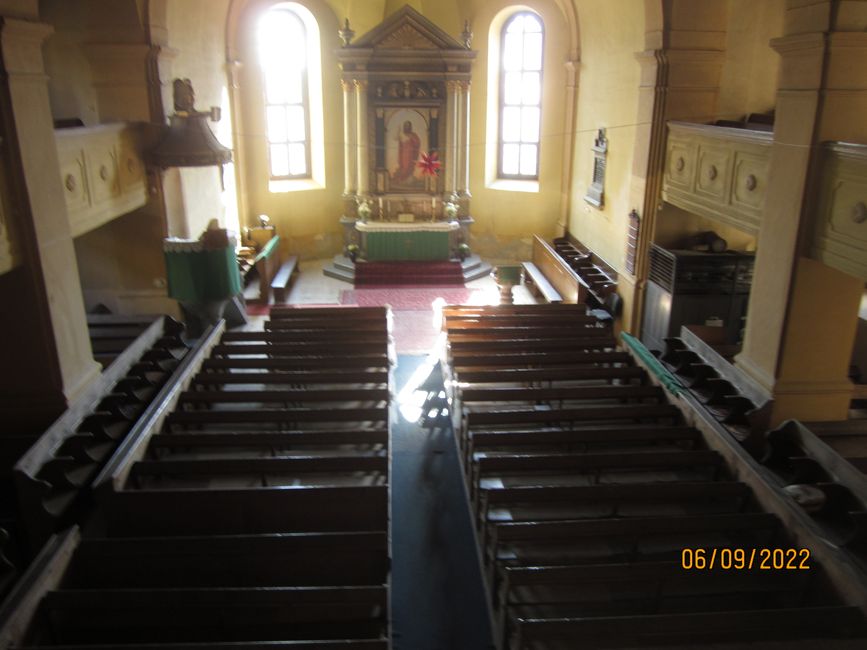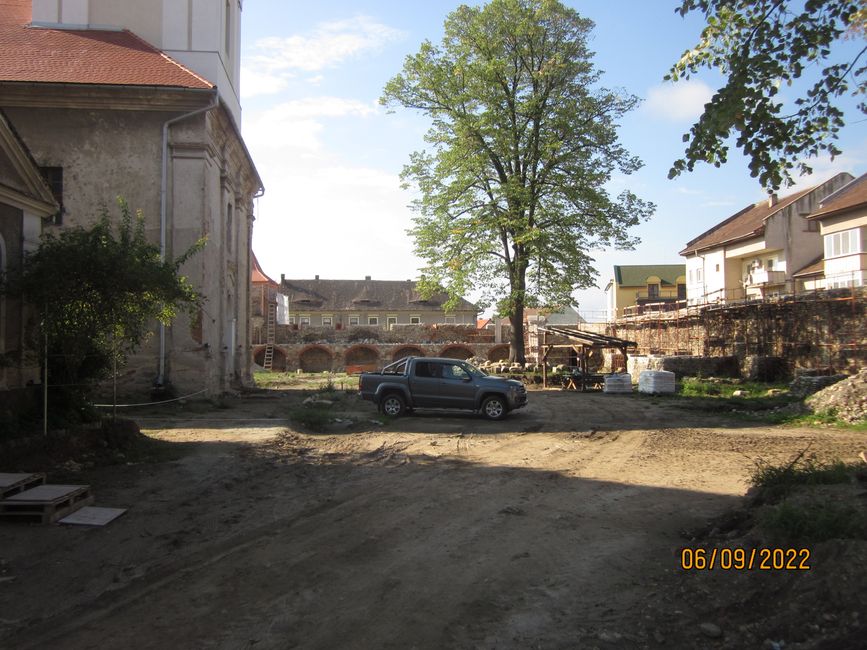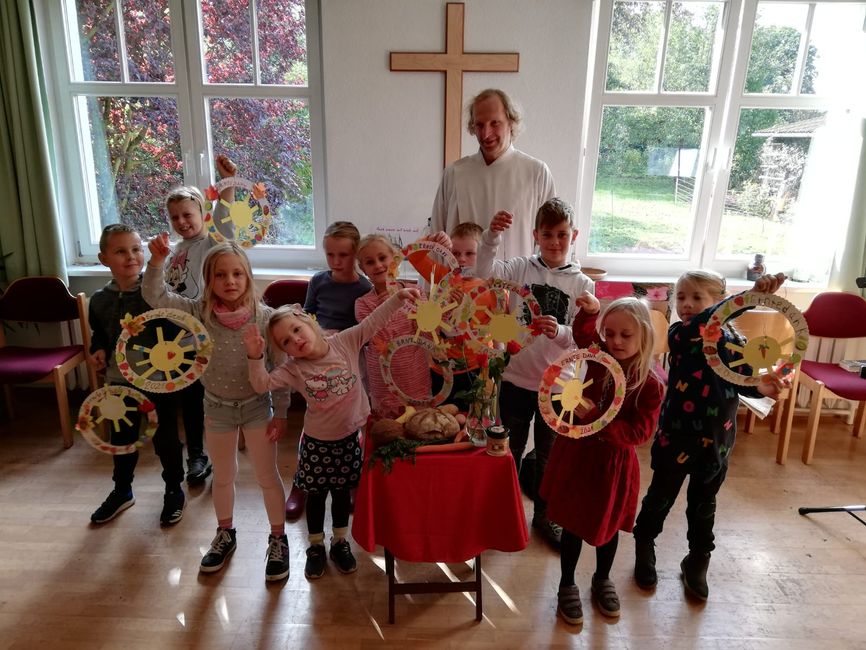
Go East - Mit dem Fahrrad zu Ev. Gemeinden in Osteuropa
vakantio.de/go-east-mit-dem-rad-zu-gemeinden-in-osteuropa
59th day - September 5th: Broos/Orastie reached
Publicado: 07.09.2022
Subscríbete ao Newsletter
Unfortunately, I slept poorly last night. There was a noisy freight train rumbling near my campsite in Miersch. That's why I packed up and left shortly after 7. I followed the E 68 highway all the way. At times, the truck traffic was very heavy and cycling was not enjoyable. After about two hours, I took a breakfast break. I looked at my cycling app to see where I could sleep near the city of Deva tonight. I also need a proper map to plan my journey through Romania. Because the first Lutheran church in Transylvania in Broos is still too far away.
In the first small town on my route, there was unfortunately no bookstore, so I continued on to Deva. There was nothing special to see along the way and I arrived in the city of Deva by half past one and found a bookstore and a road map. Unfortunately, there were no specific cycling maps. I got an overview and realized that there were only about 40km to the first Lutheran church in Broos (Orastie). I thought about it for a few minutes and decided to keep going, hoping to meet the pastor. Now I was also cycling through the typical Transylvanian landscape with its mountains and along the Miersch river, and in the distance, I saw the Fargarash mountains.
I arrived in Broos pretty exhausted shortly after 4 p.m., because I had covered 125 km that day. I quickly found the parish office, but the entrance was unfortunately locked, I didn't find a doorbell, and the pastor was also not reachable by phone. However, I saw two cars behind the locked door. So it can't be much longer until someone arrives, I told myself. I waited for an hour, then the same thing. So I took the opportunity to explore the city a bit and then returned after an hour, but the door was still locked and no one could be reached by phone. I continued to wait, but I searched Google Maps for a possible place to sleep near the city. I called again, but no one answered. So I decided to buy something for dinner and drove to the sleeping spot at the end of a street. I bought groceries at Lidl and passed by the parish office again. I tried calling one last time. And - what a miracle, or God's providence? - someone finally answered and I was able to speak directly with Pastor Nick Fernolendt. By now it was already after 7 p.m. and the sun was slowly setting. It was getting late. I was able to stay in the guest room of the church community center and we talked for a while.
To unfold the whole history of the German Transylvanian Saxons and the fortified churches they built here would go too far. In short: Transylvania used to be an almost exclusively German settlement area. The majority were Protestant. Most villages had a Lutheran church and the corresponding parish offices. Their fortified church castles are famous. However, after World War II, the first wave of emigration to Germany began. The second large wave of emigration took place in the 70s, because the communist government received money for every German who emigrated, and after the Great Turning Point of 1989/1990, the third wave of emigration began. The number of parishioners decreased significantly from year to year. Today, there are only about 15,000 Lutheran Christians scattered throughout Transylvania, as Pastor Nick Fernolendt in Broos told me.
The church in Broos is also a former fortified church. Part of the defensive wall is still standing and is currently being renovated. The special and unique thing about Broos is that two churches are located within the former castle - the Lutheran and the Reformed one.
Pastor Nick Fernolendt is responsible for a total of about 280 members in 3 cities and individual villages. In Broos itself, there are only about 90 Protestant Christians today. Naturally, this reduces the number of church services, also because some members are registered in Broos but live elsewhere. Therefore, only 15-20 people attend the Sunday service. On special Sundays, a few more. The church service is still held in German. In Deva, where there is a small community with a prayer house, it is held in Romanian. According to Pastor Nick Fernolendt, the biggest challenge is switching the language of the church services and community to Romanian, because Romanian has become the everyday language in most Protestant families in order to maintain the Protestant identity. As I fell asleep in the evening, I tried to imagine the community life of the past.
Subscríbete ao Newsletter
Resposta
